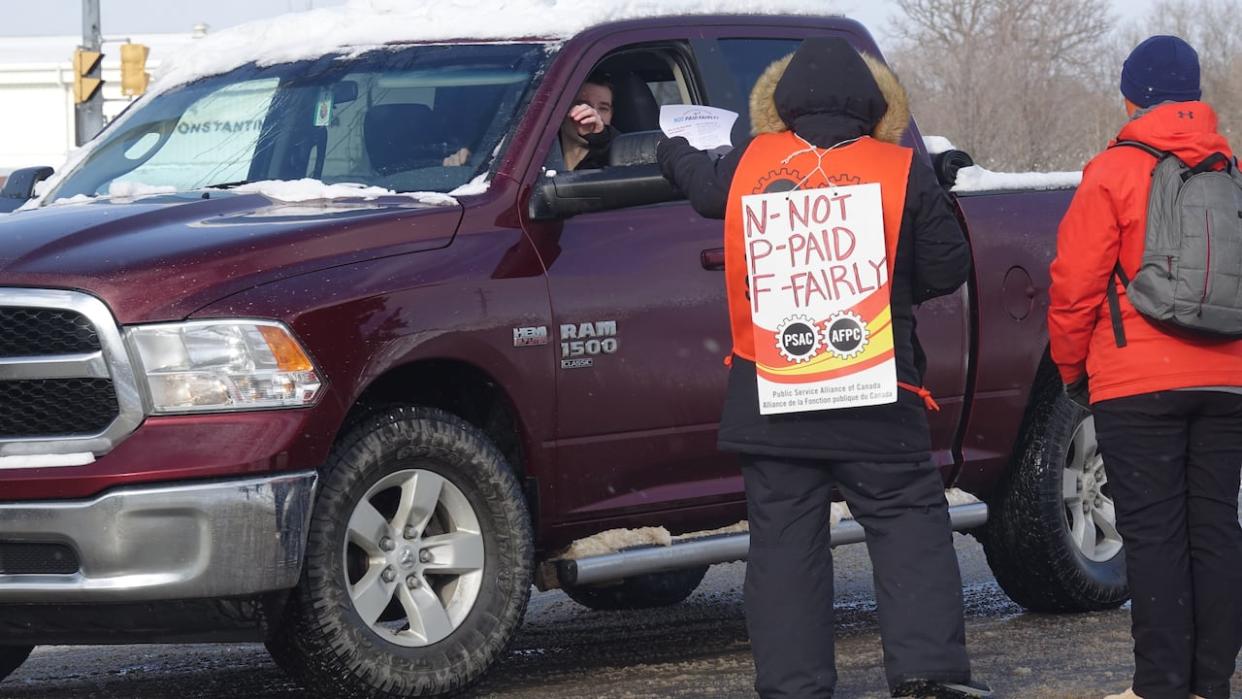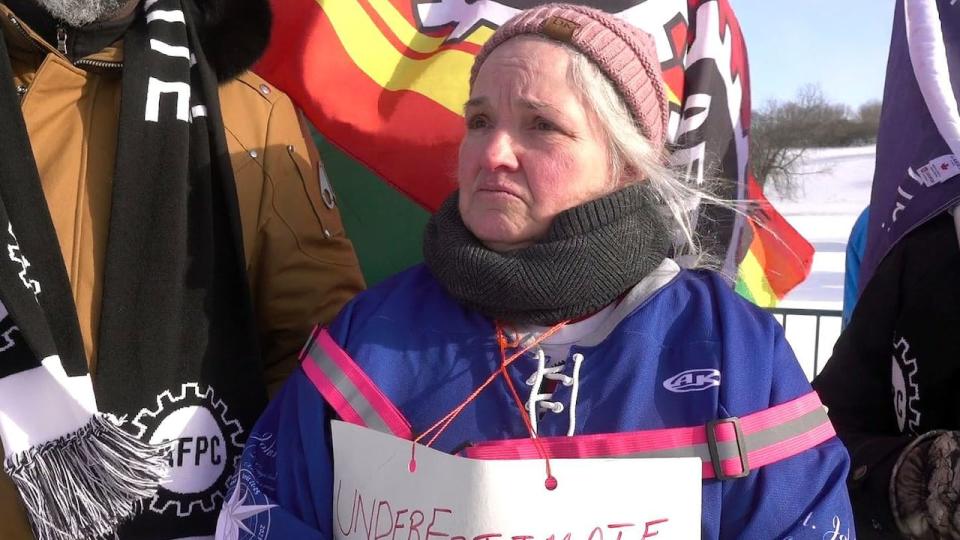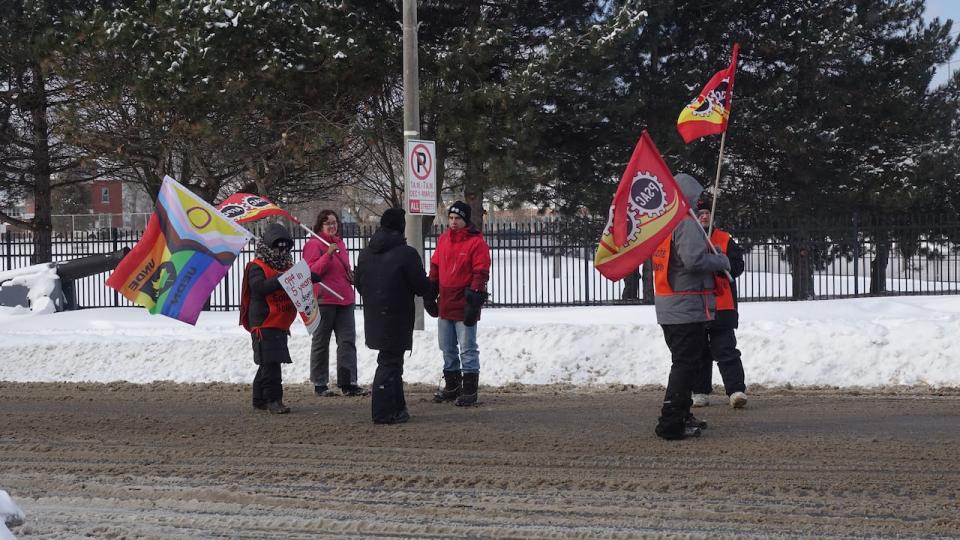Poor pay forcing civilian workers at military bases to rely on food banks, union official says

Striking civilian workers are picketing outside military bases in Ontario and Quebec, weathering the cold while calling for a boost in wages that one local union president says force some members to rely on food banks.
Robin Delve supervises the cadet mess at the Royal Military College in Kingston, Ont., where dozens of employees were blowing whistles, stopping traffic and handing out information on the reasons for the work stoppage on Monday.
She's also president of Local 00681 with the Union of National Defence Employees (UNDE), which is calling for a national pay grid to regulate wages across the country.
We're willing to stay out here for as long as it takes - Robin Delve, UNDE Local 00681
Using her own role as an example, Delve said a similar position in Ottawa could be paid as much as $10 an hour more.
She described that amount as "life-changing," and said employees must receive equal compensation for the same job.
"We have members that have three and four jobs just to put a roof over their head and food on their tables," Delve said. "We have members that are going to the food banks to feed their families."
That call for more pay was echoed on the signs worn by pickets outside RMC on Monday, where one declared "94 cents in five years is disgraceful."

Robin Delve supervises the cadet mess at the Royal Military College in Kingston, and serves as president of the local branch of the Union of National Defence Employees. (Dan Taekema/CBC)
Nearly 500 members of the Public Service Alliance of Canada (PSAC) and UNDE are off the job after negotiations with their employer broke down last week.
Staff involved in the strike are with the non-public funds group and deliver programs through Canadian Forces Morale and Welfare Services (CFMWS).
Roughly 140 workers at CFB Kingston and another 140 at Garrison Petawawa were on strike as of Monday, according to the union, along with about 70 employees in Ottawa. Civilian staff in Bagotville, Saint-Jean-sur-Richelieu and Valcartier in Quebec are also on the picket line.
Employer wants 'swift' outcome
In a statement to CBC, CFMWS said it regrets being unable to reach a deal with the union.
"We remain open to further negotiations to reach an agreement as required and we remain committed to a swift and positive outcome for all parties involved," according to a quote attributed to Ian Poulter, the CEO of CFMWS.
"We are steadfast in our commitment to our Canadian Armed Forces communities and hope to mitigate any disruptions to services as much as possible," it read.
CFMWS said managers will be stepping in to work during the strike, but services including physical fitness centres, military retail stores and recreation programs could see reduced hours or events rescheduled.
PSAC's national president Chris Aylward was out with pickets in Ottawa on Monday where he called on Defence Minister Bill Blair to return to the bargaining table.
"These are some of the lowest-paid public sector workers in the country, and we're saying it's time for them to be treated with respect and given a decent and fair wage," Aylward said.
It was around –7 C in Kingston on Monday and the area was under a weather advisory from Environment Canada warning of five to 10 centimetres of snow and reduced visibility.

Striking Union Of National Defence Employees workers walk the picket line at the Royal Military College of Canada on Jan. 15, 2024. (Dan Taekema/CBC)
Despite the cold, Delve said her members are prepared for the weather and came equipped with warming tents to give them a chance to get out of the elements.
"Our spirits are high," she said around 10 a.m. Monday. "We're willing to stay out here for as long as it takes."
Delve said striking staff look after the well-being of soldiers and their families through their work in food services, recreation and other supports, adding it's now time for CFMWS to do the same for its employees.
"They need to start worrying about the morale and welfare of the people who are delivering those programs," she said. "Right now, it doesn't seem like they want to."


